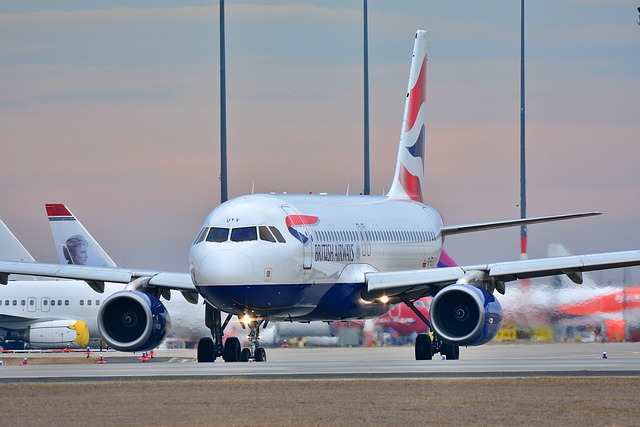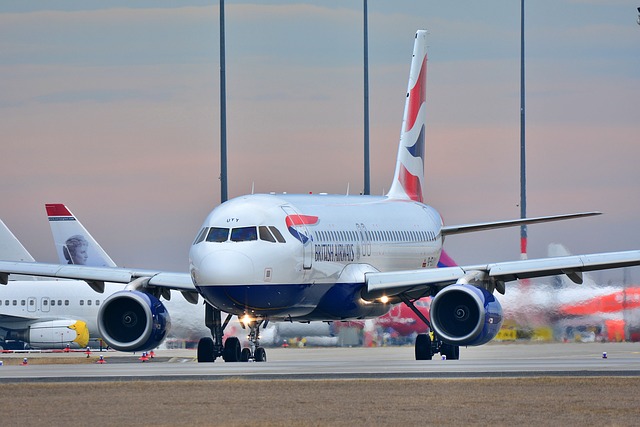Aviation Training Insights for English Speakers in Portugal
Many individuals in Portugal may be unaware that proficiency in English can significantly enhance prospects in the aviation sector. This industry is experiencing growth, presenting various roles ranging from technical positions to customer service. Understanding the requirements and conditions associated with these roles is essential for those considering a future in aviation.

Portugal has emerged as an attractive destination for aviation training, combining excellent weather conditions for flight training with modern facilities and internationally certified programs. The country’s strategic location and growing aviation sector create numerous opportunities for English-speaking individuals looking to build careers in various aviation fields.
Understanding the Aviation Industry Landscape in Portugal
Portugal’s aviation industry encompasses commercial airlines, cargo operations, general aviation, and maintenance services. TAP Air Portugal serves as the national carrier, while several regional airports support both domestic and international operations. The country hosts multiple training organizations approved by the European Union Aviation Safety Agency (EASA), ensuring that certifications obtained in Portugal are recognized throughout Europe and beyond.
The Portuguese aviation market benefits from year-round favorable flying conditions, particularly in the Algarve region, making it an ideal location for flight training. Training facilities in Lisbon, Porto, and Faro offer comprehensive programs ranging from private pilot licenses to commercial aviation certifications.
The Importance of English Proficiency in Aviation Careers
English proficiency stands as a fundamental requirement in international aviation, as it serves as the universal language for air traffic control communications and cockpit procedures. The International Civil Aviation Organization (ICAO) mandates specific English language proficiency standards for pilots and air traffic controllers operating in international airspace.
For English speakers pursuing aviation training in Portugal, this linguistic advantage provides significant benefits. Many training programs are conducted in English, and instructors often possess strong English communication skills. However, learning basic Portuguese can enhance the overall training experience and facilitate better integration into the local aviation community.
Aviation professionals must demonstrate Level 4 English proficiency according to ICAO standards, which includes understanding complex instructions, communicating effectively under stress, and comprehending technical aviation terminology.
Exploring Various Roles and Conditions in Aviation Training
Aviation training in Portugal covers multiple career paths, each with distinct requirements and conditions. Pilot training programs typically span 18-24 months for integrated courses, while modular training allows for more flexible scheduling. Ground school subjects include navigation, meteorology, aircraft systems, and aviation law.
Aircraft maintenance training focuses on mechanical, avionics, and structural repair skills. These programs usually require 24-30 months of study and include both theoretical knowledge and hands-on experience with various aircraft types. Air traffic control training combines classroom instruction with simulator practice, preparing students for the demanding environment of airport control towers.
Cabin crew training programs are shorter, typically lasting 4-8 weeks, covering safety procedures, customer service, and emergency response protocols. These courses prepare students for roles with both Portuguese and international airlines.
| Training Type | Provider | Duration | Cost Estimation |
|---|---|---|---|
| Integrated Pilot License | AeroClube de Portugal | 18-24 months | €80,000-€120,000 |
| Aircraft Maintenance | Instituto Superior Técnico | 24-30 months | €15,000-€25,000 |
| Air Traffic Control | NAV Portugal Academy | 12-18 months | €20,000-€35,000 |
| Cabin Crew Training | TAP Training Center | 4-8 weeks | €3,000-€6,000 |
Prices, rates, or cost estimates mentioned in this article are based on the latest available information but may change over time. Independent research is advised before making financial decisions.
Training conditions in Portugal generally feature modern facilities equipped with advanced flight simulators and well-maintained aircraft fleets. Many schools maintain partnerships with European airlines, providing potential pathways to employment upon completion of training programs.
Weather conditions favor flight training throughout most of the year, with minimal disruptions due to adverse weather. This consistency allows students to progress through their training more efficiently compared to locations with seasonal weather challenges.
Certification and Regulatory Framework
Portugal operates under EASA regulations, ensuring that all aviation training meets European standards. This regulatory framework provides students with internationally recognized certifications that facilitate career mobility throughout Europe and other regions that accept EASA licenses.
The Portuguese Civil Aviation Authority (ANAC) oversees training organization approval and maintains strict standards for instructor qualifications and facility requirements. Students can verify training organization credentials through ANAC’s official database before enrolling in programs.
License validation processes allow holders of non-European licenses to convert their certifications to EASA standards, making Portugal an attractive location for international students seeking European aviation credentials.
Portugal’s aviation training sector offers English speakers excellent opportunities to develop professional skills in a supportive environment. The combination of favorable training conditions, internationally recognized certifications, and diverse career pathways makes the country an attractive destination for aviation education. Prospective students should research specific program requirements, costs, and career prospects to make informed decisions about their aviation training journey in Portugal.




